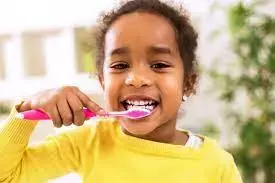- Home
- Medical news & Guidelines
- Anesthesiology
- Cardiology and CTVS
- Critical Care
- Dentistry
- Dermatology
- Diabetes and Endocrinology
- ENT
- Gastroenterology
- Medicine
- Nephrology
- Neurology
- Obstretics-Gynaecology
- Oncology
- Ophthalmology
- Orthopaedics
- Pediatrics-Neonatology
- Psychiatry
- Pulmonology
- Radiology
- Surgery
- Urology
- Laboratory Medicine
- Diet
- Nursing
- Paramedical
- Physiotherapy
- Health news
- Fact Check
- Bone Health Fact Check
- Brain Health Fact Check
- Cancer Related Fact Check
- Child Care Fact Check
- Dental and oral health fact check
- Diabetes and metabolic health fact check
- Diet and Nutrition Fact Check
- Eye and ENT Care Fact Check
- Fitness fact check
- Gut health fact check
- Heart health fact check
- Kidney health fact check
- Medical education fact check
- Men's health fact check
- Respiratory fact check
- Skin and hair care fact check
- Vaccine and Immunization fact check
- Women's health fact check
- AYUSH
- State News
- Andaman and Nicobar Islands
- Andhra Pradesh
- Arunachal Pradesh
- Assam
- Bihar
- Chandigarh
- Chattisgarh
- Dadra and Nagar Haveli
- Daman and Diu
- Delhi
- Goa
- Gujarat
- Haryana
- Himachal Pradesh
- Jammu & Kashmir
- Jharkhand
- Karnataka
- Kerala
- Ladakh
- Lakshadweep
- Madhya Pradesh
- Maharashtra
- Manipur
- Meghalaya
- Mizoram
- Nagaland
- Odisha
- Puducherry
- Punjab
- Rajasthan
- Sikkim
- Tamil Nadu
- Telangana
- Tripura
- Uttar Pradesh
- Uttrakhand
- West Bengal
- Medical Education
- Industry
Brush Day & Night programme successfully improves oral hygiene in children: Study

The Brush Day & Night programme is successful in improving oral hygiene in children, according to a study published in the International Dental Journal.
Poor oral hygiene can have an adverse effect on the quality of life. School-based interventions can establish positive behaviours that reduce the likelihood of dental caries later in life. The Brush Day & Night programme aims to encourage good oral health behaviour and improve oral health and quality-of-life outcomes. In this article, we report the effect of the programme on well-being and oral hygiene measured by plaque levels at 3, 8, and 24 weeks and dental caries at 24 weeks after the programme start date.
This was a superiority cluster randomised trial of children 6-12 years of age from Indonesia (N = 2021) and Nigeria (N = 2104). All children were provided with toothpaste and a toothbrush. Children in the intervention group received the 21-day Brush Day & Night programme, whereas those in the control group did not. Children completed a questionnaire addressing the objectives at all time points. Their oral hygiene was assessed using the Oral Hygiene Index-Simplified (OHI-S). Additionally, at baseline and 24 weeks their caries status was recorded using the decayed, missing, and filled teeth (DMFT) index.
The Results of the study are:
In Indonesia, after participation in the programme children demonstrated a 45% increased probability of no worsening in the occurrence of decayed, missing, or filled teeth. In Nigeria, children had a 71% higher probability of having confidence in their smile and the proportion of children with good oral hygiene doubled from 40% to 80% at 24 weeks.
Thus, the researchers concluded that the Brush Day & Night programme was successful in improving well-being and oral hygiene in children in Nigeria and reduced the likelihood of worsening in the occurrence of decayed, missing, or filled teeth in children in Indonesia.
Reference:
Impact of the Brush Day & Night Programme on Well-Being, Plaque, and Dental Caries in Children by Paulo Melo et al. published in the International Dental Journal.
https://doi.org/10.1016/j.identj.2021.01.018
Dr. Shravani Dali has completed her BDS from Pravara institute of medical sciences, loni. Following which she extensively worked in the healthcare sector for 2+ years. She has been actively involved in writing blogs in field of health and wellness. Currently she is pursuing her Masters of public health-health administration from Tata institute of social sciences. She can be contacted at editorial@medicaldialogues.in.
Dr Kamal Kant Kohli-MBBS, DTCD- a chest specialist with more than 30 years of practice and a flair for writing clinical articles, Dr Kamal Kant Kohli joined Medical Dialogues as a Chief Editor of Medical News. Besides writing articles, as an editor, he proofreads and verifies all the medical content published on Medical Dialogues including those coming from journals, studies,medical conferences,guidelines etc. Email: drkohli@medicaldialogues.in. Contact no. 011-43720751


